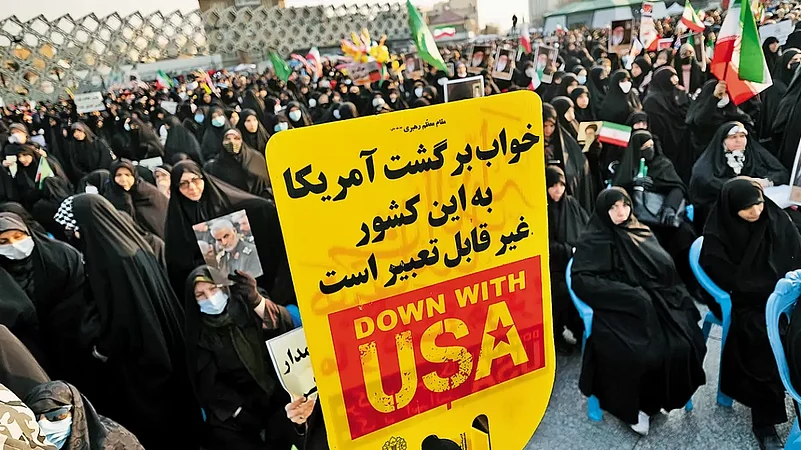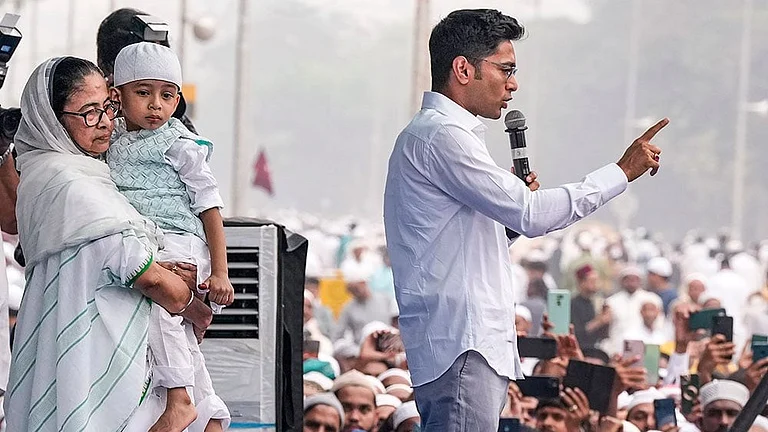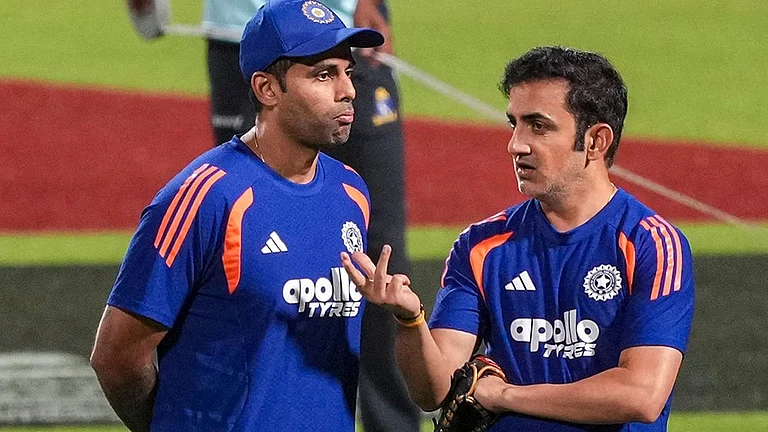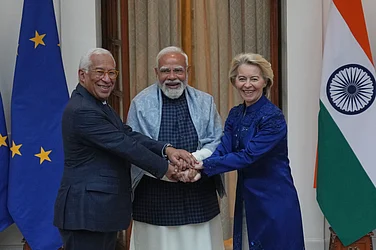On September 13, 2022, the Guidance Patrol (Gasht-e-Ershad) took Jina Mahsa Amini, a 22-year-old Iranian-Kurd woman, into custody. The Guidance Patrol, operating as a subdivision of the police force, was established in 2005 to enforce the country’s compulsory veiling mandate, which had been in effect since the early years of the 1979 revolution. The Patrol took Amini into custody over what it perceived to be inadequate veiling. Security camera footage showed Amini collapsing while she was waiting in detention. She was then transported to the hospital where she died.
Amini’s death put in motion a series of protests and riots across the country, and at times, violent responses by security forces. One stream of protests focused on the issue of compulsory veiling and an end to the Guidance Patrol while another demanded a complete overthrow of the Islamic Republican state. The protests unified under the slogan of “Woman, Life, Freedom,” and appeared most potent in the months of September and October. However, they carried on into the winter solstice. Compared to earlier protests, the 2009 Green Protests in particular, the ‘Woman, Life, Freedom’ protests have been more sustained but less concentrated. They may thus appear less impressive in photos; however, these protests highlight some of the deepest divides over the question of religious politics since the Islamic Republic’s founding in the early 1980s. In its response, the government did not legislate on voluntary veiling. However, defiance of compulsory veiling has intensified in recent months and the presence of the Guidance Patrol appears dimmer than before the protests.
As Iranians were demanding change, Western countries were quick to intervene. This was the latest episode of Regime Change International extending its tentacles into the affairs of a country from the Global South. I adapt the idea of ‘Regime Change International’ from Joseph Massad’s Desiring Arabs in which he coins the concept of ‘Gay International’. For Massad, Gay international compromises soft power networks, non-governmental organisations (NGOs) in particular, that export Western gay identities into the Arab world, and thereafter, task themselves with the mission of saving, from ‘oriental repression’, those who have been ‘converted’ into expressing their desires through these identities. Gay identities then replace precolonial forms of desires and Arab homosexuality, also provoking Arab states to legislate against alternative desires. Most recently, we witnessed Gay International’s intervention in Qatar during the 2022 World Cup where Westerners parachuted into an unfamiliar country to lecture Arabs about gay rights. They were ignorant of, or decided to ignore, the long history of homosexuality in the Arab world, which is reflected in Arabic poetry, visual art, and social history. Instead, with their footballers as the vanguard, they reduced a panorama of desire to a simplistic narrative of repression—salvation from which depended entirely on whether Arab homosexuality could be forced into the same discourse of LGBTQ identities that they had in their own countries.
Just like the agents of Gay International, those involved in regime change are not exclusive to U.S. war hawks, such as the notoriously-caricatured John Bolton. Neither are they reduced to major military interventions, such as NATO’s 2011 destruction of Libya’s infrastructure under the pretext of democracy. Regime Change International extends to a larger network of soft power operatives, including media, think-tanks, and even those collectives that are ostensibly innocuous, such as those within academia, and NGOs. The NGOs include human rights organisations whose links to Washington and their ideological targeting of the former colonies are well-documented. What makes Regime Change International particularly dangerous is that it is ideologically diffused, bringing Western conservatives, liberals, and even leftists together. Even though their efforts are not necessarily coordinated, they converge in providing discursive sense to Washington’s hybrid war with Iran. A hybrid war is not a conventional war involving two militaries that fight one another but one that employs multiple acts of aggression without direct military confrontation. In the case of the US’ hybrid war on Iran, these tactics include economic sanctions, illegal assassinations, imprisonment of Iranian citizens in international transit, media misinformation campaigns, seizure of Iranian websites, and much more.
In the context of such a hybrid war, Iranian protesters, in the diaspora in particular, asking the “international community” to “be [their] voice” must be scrutinised. The critical question is whether Westerners, who are the self-appointed representatives of this ‘international community,’ can meaningfully represent Iranian voices against the harassment of the Guidance Patrol. Any moralistic discourse on the ‘colony’ that comes out of the ‘metropole’ is representationally and cognitively intertwined with imperialism, and swiftly appropriated by Regime Change International. Seeking representation from this so-called international community is thus a risky business. Iranians should, for solidarity and inspiration, look in the direction of other members of the international community, namely countries and peoples united in a common struggle against imperialism. Muslim countries, such as Turkey and Malaysia, that have synthesised Islamic values and voluntary veiling provide a compelling example for inspiration.
In recent years, the Iranian state has undertaken initiatives to strengthen political and economic ties with the countries of the Global South. However, in the cultural and intellectual realms, ‘South-South’ engagement appears limited. This has been an unfortunate consequence of colonialism, nationalism, and Europhile modernisation, which severed the connected histories of our past. Iranians and Indians, for instance, from the time of the Delhi Sultanate (1206-1526 A.D) to the imposition of the British Raj (1858-1947), partook in a connected world where they shared recipes for food, tastes in literature, rules on government, and aspirations to rebellion. This connected world is no more. However, the past can inspire the forging of future links towards a regional solidarity. This form of solidarity should not reproduce the same old relationship of ‘North-South’ moralising, where one side unilaterally moralises upon the other, or bullies it politically to garner conformity. It should instead be based on building mutually beneficial political and economic networks, alongside intellectual and cultural collaboration on reform and healing in response to the state’s injustices, such as those that put into motion the ‘Woman, Life, Freedom’ protests.
Two major obstacles stand in the way of such a ‘South-South’ solidarity. One is in the material configuration of power where, as of now, the countries of the Global North have the most political and economic power. The second obstacle is that imperialism reaches far and wide into the Global South. As African literary critic, Ngu˜gi˜ wa Thiong’o, wrote so memorably: “[colonialism’s] most important area of domination was the mental universe of the colonised, the control, through culture of how people perceived themselves and their relationship to the world. Economic and political control [could] never be complete or effective without mental control. To control a people’s culture is to control their tools of self-definition in relationship to others”. There is, thus, a lot of work to be done, both materially and mentally, to pave a new path towards a solidarity that will be far more effective for the purposes of self-reflection, reform, moral accountability, and healing than the moralising that comes from the West, which is almost invariably stained with the mark of Regime Change International.
Navid Zarrinnal is an interdisciplinary scholar at Stanford University





















